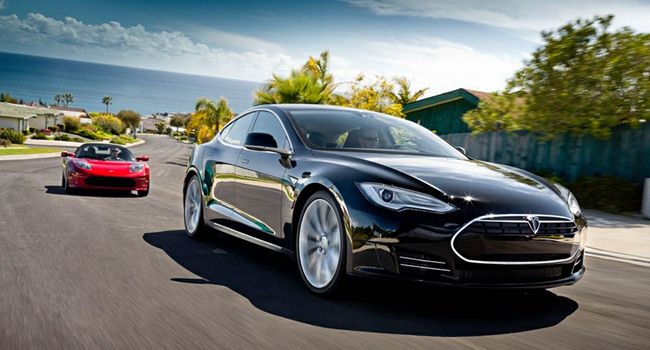With powerful hardware working together with an industry-leading camera system and intuitive AI experiences, everyday tasks have never been easier and faster
Tesla Motors unveils supercharger network


If this works it could be the biggest revolution in motoring since someone looked at a horse and thought “I can do better than that”. Electric car company Tesla has unveiled a network of superchargers that will allow people driving its Model S sedan to fill up with juice in minutes rather than hours.
The company, owned by billionaire innovator Elon Musk, reckons that half an hour on one of the superchargers see a car’s battery reach a half-full charge. It claims that this should give drivers “150 miles of range with our 85 kWh battery”.
According to Tesla:
Supercharging is a game-changing solution to a common question — how to enable long road trips in an electric vehicle without long stops. The answer is simple: more power, and a faster path to your battery.
The company says that the supercharger will deliver around 4.5 times as much power as usual to the car’s battery. It manages to do so safely with “special cables that connect directly to your battery, bypassing onboard charging equipment”.
If you’re concerned that the power charging the Teslas is dirty, Tesla says that a number of the locations will have solar cells.
Although there are currently only six supercharger station in California, the company plans to have 100 rolled out across the US by 2015.
While Tesla’s is probably the most visible attempt at fast, efficient electrical charging, it isn’t the only one.
A company called Better Place has taken a slightly different approach. It is building a new battery swapping infrastructure. Here’s how it works: Better Place has a series of stations along main routes. Once your juice is empty, you simply drive up to the station and robots replace your empty battery for a fully charged one “in less time than it takes to fill up with petrol”.
We’re reliably informed that the company is testing out the solution on “Road Islands” in Israel and Hawaii with plans to scale up Australia in the near future. Oh and if the company’s bumpf is to be believed it only uses renewable energy to charge the batteries.

